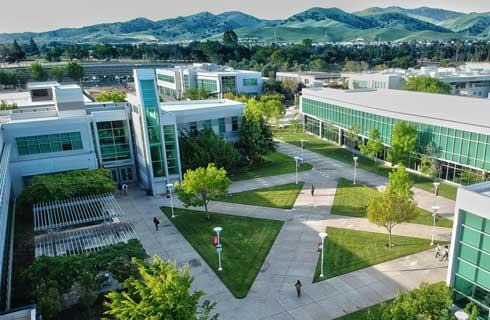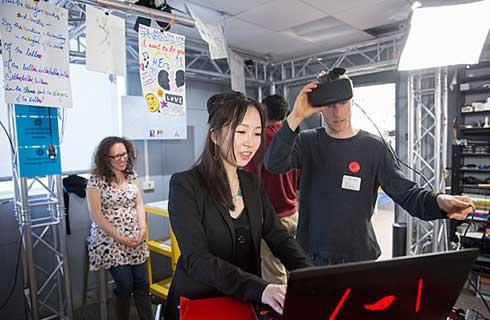理学硕士(科学)(旱地农业系统)
Master of Science (Science) (Dryland Agricultural Systems)

学历文凭
Masters Degree (Coursework)

专业院系

开学时间

课程时长

课程学费

国际学生入学条件
Writing 6.0
Speaking 6.0
Reading 6.0
Listening 6.0
Overall band score 6.5
TOEFL IBT - 79
R – 13
L – 13
S – 18
W – 21
TOEFL PBT (Paper Based Test) - 570 and 4.5 in TWE
Certificate in Advanced English (CAE): 176
You must have a bachelor degree in science and have achieved competency in agricultural systems or a related discipline to the level of second year tertiary study. Credits for recognised learning may be granted if you have successfully completed an honours or graduate diploma in this field of study.
IDP—雅思考试联合主办方

雅思考试总分
6.5
- 雅思总分:6.5
- 托福网考总分:79
- 托福笔试总分:570
- 其他语言考试:PTE Academic (Pearson Test of English) Listening 50<br>Reading 50<br>Writing 50<br>Speaking 50<br>Overall score 58
CRICOS代码: 061489J
申请截止日期: 请与IDP联系 以获取详细信息。
课程简介
Gain comprehensive understanding of dryland agricultural systems, and examine farming systems in Australia's Great Southern and South West regions. This course will provide you with the skills to pursue a career in agricultural research and development. Graduates may also find work as consultants and advisers to the livestock and cropping industries in Mediterranean environments around the world.<br><br>You will cover science and technology for crop, pasture and livestock production (including the roles of genetics and management in achieving optimum production against environmental constraints), and their integration into viable farming systems.<br><br>You will place special emphasis on emerging technologies for precise management of crops and livestock, and their role in ensuring safe, sustainable production systems. In your second year, you will undertake supervised research into a current and emerging industry problem. Intensive study periods may also be available over the summer or vacation periods.<br><br>What you ll learn<br>Understand the global and cultural issues in agriculture and how these impact on the practice and management of farming systems<br>Appreciate the importance of cultural and individual human rights and how these impact on the study of agriculture, embrace the diversity and opportunities presented by different cultures, value environmental, indigenous and other community perspectives<br>Work both as an independent scientist and within teams, either as a professional leader or a collaborator, using effective problem solving and decision making skills in an ethical manner<br>Acquire professional skills in management of soil, crop, pasture and livestock, allowing the application of this knowledge to a wide variety of rainfed farming situations<br>Use logical scientific methods to analyse problems and apply this knowledge to a wide variety of rainfed farming situations especially in a Mediterranean context<br>Students will be fluent in current literature, theories and practices of production technology and their integration into farming systems<br>Use a broad range of communication skills appropriate to the audience<br>Select and use new and established technologies appropriate to dryland farming systems<br>Acquire and contribute to new agricultural and scientific knowledge and expertise relating to a broad variety of professional situations and recognise the importance of continuous training and education
相关申请
 预科
预科 奖学金
奖学金 实习机会
实习机会 在校学习
在校学习 跨境学习
跨境学习 校园授课-线上开始
校园授课-线上开始 在线/远程学习
在线/远程学习
开学时间&学费
学费信息仅供参考,请与IDP联系以获取详细信息
| 开学时间 | 时长 | 学费 | 地点 |
|---|
学校排名

世界排名301
数据源:
泰晤士高等教育世界大学排名
关于科廷大学

科廷大学是一所具有创新精神的全球性大学,因极具影响力的研究、与行业的密切合作关系以及致力于帮助学生为未来就业做好准备而闻名。科廷大学因优质的教学和科研而享誉全球,在''2019年世界大学学术排名''(Academic Ranking of World Universities 2019)中位居全球大学前1%之列。在2019年''泰晤士高等教育世界大学排名''(Times Higher Education World University Rankings)中,该校还名列澳大利亚第9位。在''QS世界大学排名''评选的全球校龄低于50年的年轻大学中,科廷大学名列第21位。科廷大学的足迹遍布全球,在西澳大利亚、马来西亚、新加坡、迪拜和毛里求斯都设有校区,与全球130多所院校建立了合作伙伴关系。就读科廷大学,学生不仅可以获得在国际上受到认可的学历,同时其学位还将具有全球维度。 学生可以在采用大量先进技术的模拟工作环境中学习本科和研究生课程。这样能够使学生加强学习,毕业前即可掌握实践技能和经验。科廷大学与业界的联系让学生可以获得工作和实习机会,从而能够让其提高技能、积累雇主所青睐的实际工作经验。科廷大学的校园兼容并包、充满活力,课余时间,学生可在校园中参加体育、社团、志愿工作和校园活动。这些课外活动能让学生获得崭新的体验、结识新朋友并为自己的简历增光添彩。此外,学生还可获得许多支持服务,其中包括保健、儿童托管、住宿以及其他学习支持服务。
本校相关课程

哲学博士(环境与农业)
学历文凭
Ph.D.
开学日期
课程费用总额


工学学士(荣誉学位)
学历文凭
Bachelor Degree with Honours
开学日期
课程费用总额


市场营销硕士
学历文凭
Masters Degree (Coursework)
开学日期
课程费用总额


信息系统与技术硕士
学历文凭
Masters Degree (Coursework)
开学日期
课程费用总额


商业研究生证书
学历文凭
Graduate Certificate
开学日期
课程费用总额


哲学硕士(公共关系)
学历文凭
Masters Degree (Research)
开学日期
课程费用总额

其他相关课程

New Zealand Certificate in Animal Technology (Level 5) with strands in Rural Animal Technician
 怀卡托理工学院
怀卡托理工学院学历文凭
Certificate level 5
开学日期
课程费用总额


农业科学研究生文凭
 林肯大学
林肯大学学历文凭
Postgraduate Diploma
开学日期
课程费用总额


农业科学研究生证书
 昆士兰大学
昆士兰大学泰晤士高等教育世界大学排名:80
学历文凭
Graduate Certificate
开学日期
课程费用总额


农业科学硕士-课程工作-遗传育种
 西澳大学
西澳大学学历文凭
Masters Degree (Coursework)
开学日期
课程费用总额


理学硕士(科学)(旱地农业系统)
 科廷大学
科廷大学泰晤士高等教育世界大学排名:256
学历文凭
Masters Degree (Coursework)
开学日期
课程费用总额


理学硕士-农业科学
 梅西大学
梅西大学泰晤士高等教育世界大学排名:540
学历文凭
Masters Degree (Taught)
开学日期
课程费用总额










